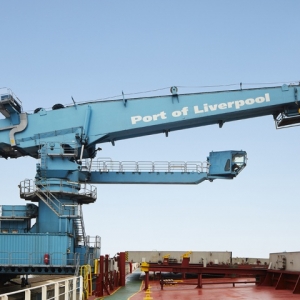


(Posted on 09/10/19)
The shipping heritage of Liverpool City Region (LCR) could provide a major boost to the UK’s economic prospects post-Brexit according to a major new report.
Mersey Maritime, working with Maritime UK and the Centre for Economics and Business Research (CEBR), commissioned the report to determine how important the region’s maritime industry is to the national economy and the LCR.
The report found that the maritime sector clustered around the Mersey directly drove just under £2.0 billion in domestic output through business turnover in 2017. Compared to 2010, LCR’s domestic output levels across the sector have grown by 118 per cent – approximately £1 billion.
It also produced £650 million in GVA and 7,899 jobs in the LCR in 2017, making it the UK’s stand out region compared with a national report published last month by Maritime UK.
LCR also outperformed the UK average GVA per employee. In 2017, LCR maritime productivity stood at £81,461, while the UK average sat at £54,330.
Maritime Minister Nusrat Ghani said: “This report clearly shows the vital role the UK’s maritime sector plays in our daily lives – keeping things moving 24/7 and helping the economy thrive. Liverpool City Region is a prime example, with the industry estimated to have driven almost 8,000 jobs and £2 billion in 2017. To continue this success, we recognise the need to rise to the commercial challenges of our time - our landmark Maritime 2050 strategy, along with our strong partnerships with industry will help the sector continue to flourish.”
The new report, The Economic Contribution of the Maritime Sector in the Liverpool City Region, also found that:
The maritime sector supports other major sectors of the economy, such as offshore oil, gas and renewable energy, as well as automotive exports. For the purposes of the report the maritime sector has been defined as consisting of the ports, shipping, leisure marine, marine engineering, and scientific and maritime business services industries. It excludes other aspects of the supply chain sector.
The report explains that the footprint of the maritime sector in the LCR is extensive and diverse, spread across areas of transport, infrastructure, training, business services and equipment manufacturing.
Within these sub-sectors are goods and services which are highly exportable, giving renewed hope for the UK’s export potential in a post-Brexit trading landscape.
The LCR report follows on from the national report produced by CEBR and Maritime UK which showed that the maritime sector contributes £46.1 billion to the UK economy – an £8.3 billion increase since 2010.
Published on 11 September, the ‘State of the Maritime Nation’ report found that the maritime sector in the UK is bigger than both the automotive and aerospace industries in terms of its financial contribution and is central to the country’s national prosperity.
Chris Shirling-Rooke, CEO of Mersey Maritime, said: “The national report showed the industry to be a massive contributor to the economic wellbeing of the UK and the findings of this new report have confirmed how significant the LCR contribution is within that. It’s even more remarkable considering that they exclude non-maritime logistics operations. These positive findings are a real vote of confidence in the dynamism and hard work of the people Mersey Maritime deal with on a day to day basis, our members.”
Mark Whitworth, CEO at Peel Ports, said: “The maritime sector is an enabler of trade, ensuring the supply of energy, food and commodities – the import and export of which is crucial for other UK businesses to thrive. As we look ahead to a post-Brexit trading future, Liverpool is not only strategically located for imports and exports, it has the relevant investment and infrastructure to make it the UK’s most important and valuable trade link with the rest of the world.”
With this year’s Rail Conference “Rail Freight Transport and Seaports”, a joint initiative... Read more
Asian Bulk Logistics (ABL Group) and ICG have jointly announced the successful completion of ABL&rsquo... Read more
Abu Dhabi based AD Ports Group, a leading global enabler of integrated trade, industry and logistics... Read more
The Executive Board of Hamburger Hafen und Logistik AG (HHLA) has appointed Patrick Krawutschke as Managing... Read more
Abu Dhabi based AD Ports Group, a global enabler of integrated trade, transport, industry, and logistics... Read more
This year marks a significant milestone in maritime innovation as Port Hedland, Australia, celebrates... Read more
Associated British Ports (ABP), the UK’s leading port operator, has announced the latest tranche... Read more
During the Investment, Labour, and Trade Promotion Programme in Japan (November 16–22, 2025),... Read more
AD Ports Group subsidiary Khalifa Economic Zones Abu Dhabi - KEZAD Group, the largest operator of integrated... Read more
Abu Dhabi based AD Ports Group, a global enabler of integrated trade, transport, industry, and logistics... Read more